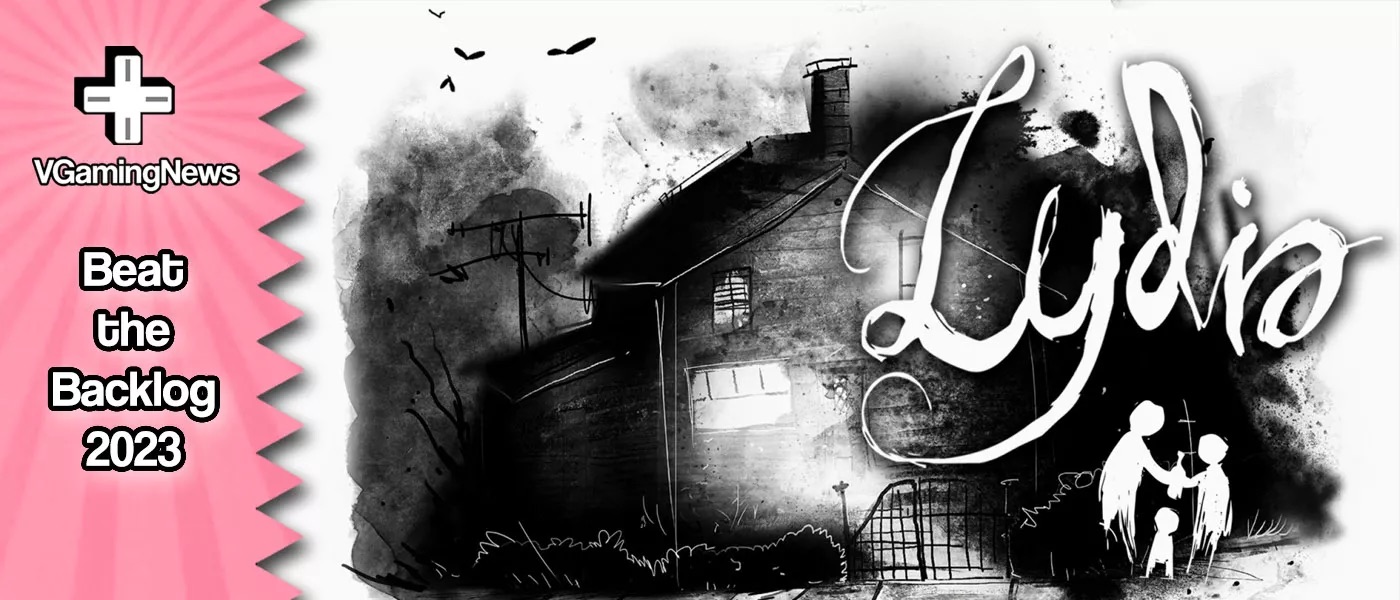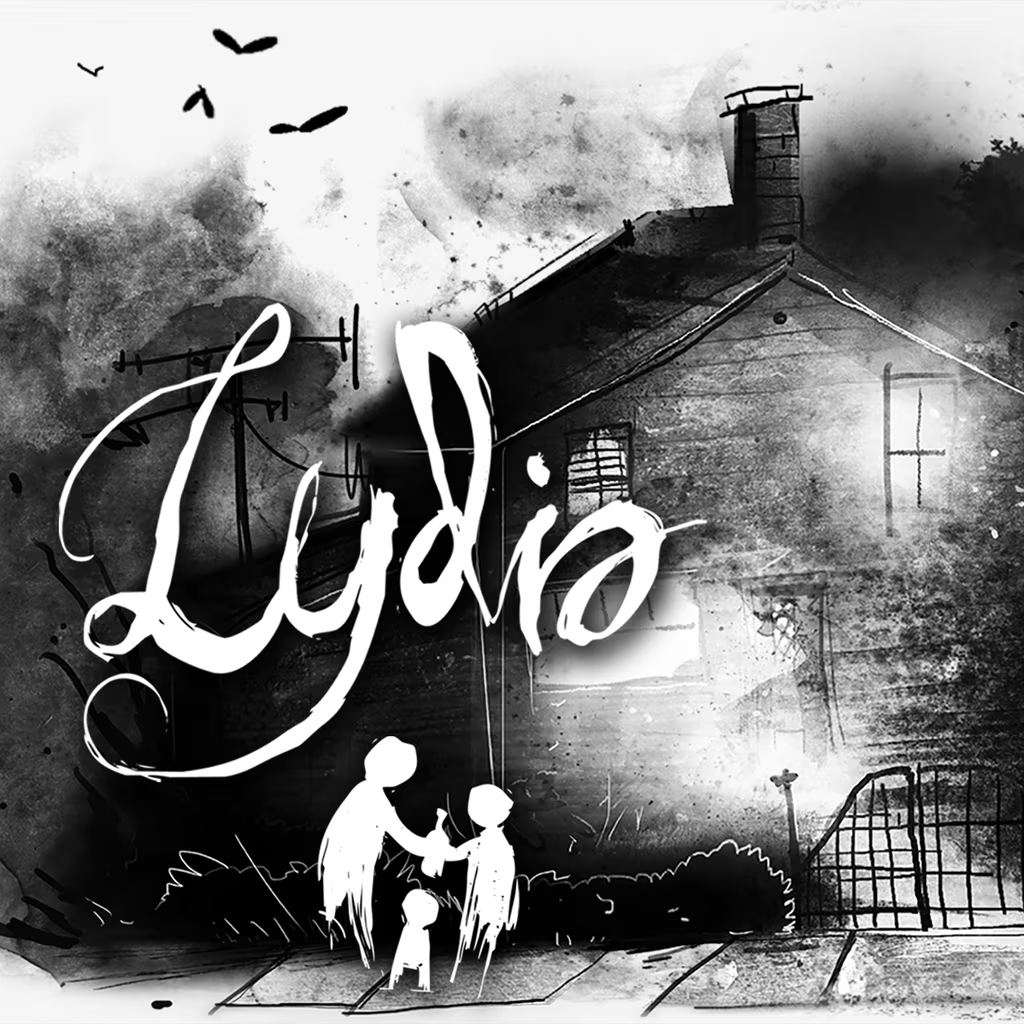Looking at Lydia in my backlog, I wasn’t entirely sure what drew me to buying it. It could have been the haunting monochrome screenshots, or the rather sinister key art. It could have been bought in a splurge when I went through a phase of buying really random titles from the eShop that were just a couple of quid each – honestly, I have no idea. Whatever it was, when I found myself with a spare hour before bed last week, and the ever helpful HLTB advised me I could use it to get a whole game polished off, I decided to get to it, eager to add to my dying Beat the Backlog feature!
The tale begins as a young Lydia is sent to her room after hearing a rather misguided bedtime story from her father, and she’s too frightened to sleep. Searching for her bear as a comfort, something in her closet teleports Lydia to a magical world filled with strange characters, led by her talking teddy bear as a guide. Things quickly begin to sour as Lydia meets a foul-mouthed knight who is so drunk that he has no idea what’s going on, and the story begins to unfold in a rather bizarre manner from there. Some questionable animations and pretty grating ‘speech sounds’ rang alarm bells right off the bat, indicating that Lydia wasn’t going to be a game I’d fall in love with. As those first few minutes ticked by it became apparent just how little I was allowed to do as the player – and not even in a visual novel sense, where I’d at least have been able to make some choices and help steer the story – I was clearly just along for the ride in this minimally interactive story.
The story-proper follows Lydia as she grows up in a broken household where her unloving parents relegate her to the bottom rung of the ladder below themselves, their social lives, and most importantly, alcohol. You’ll experience key moments in Lydia’s life and feel the significant impact that alcohol has on shaping the person she becomes in what is undoubtedly a bleak experience. You’ll reach a strong crescendo after about 45 minutes that works hard to give a positive finale but ultimately struggles to overcome the sheer unpleasantness of what’s come before. As a guy who’d bought the game some 14 months earlier and couldn’t remember a thing about the blurb, I was a little shocked that the title screen didn’t come with a trigger warning.
Even in the early goings, when young Lydia’s surreal imaginings attempt to pull a thin veil of childhood naivety over the overarching theme, the story is pretty on the nose. Nakana.io boldly puts the issue of alcoholism front and centre, wishing to impress upon players the severe impact it has on individuals and families. While undoubtedly a worthwhile endeavour, I question whether a more subtle approach might have made Lydia a more thought-provoking experience that players would be more likely to recommend, effectively increasing the reach of the message. As it stands, the game lets you know early on that it isn’t going to be an enjoyable ride, and it might have turned me off entirely had I not been forearmed with the knowledge of the short runtime.

Away from the story, I liked the hand drawn monochrome backgrounds, splashed here and there with colour for added impact, and I enjoyed the soundtrack, which underpins the mood of the story well. Sadly, most everything else falls below the standard of enjoyable, and I found the speech sounds entirely annoying from start to finish. As a gaming experience, Lydia was a tough slog, buoyed even as it was by the important subject matter.
Despite telling an unhappy tale that offers no joy in the playing, Lydia does a lot of good in its optional DLC, #LydiaDonation. In game, the DLC adds a colouring book for Lydia to play with, allowing her to paint in bright colours to escape the darkness of her upbringing but more importantly, every purchase of the DLC acts as a donation to Fragile Childhood, a non-profit organisation working to lessen the harm caused to children through parental substance abuse. Whether I enjoy the media or not, I will readily pull for the success of any project that can help ease the suffering of others, and applaud Nakano.io for their efforts here.
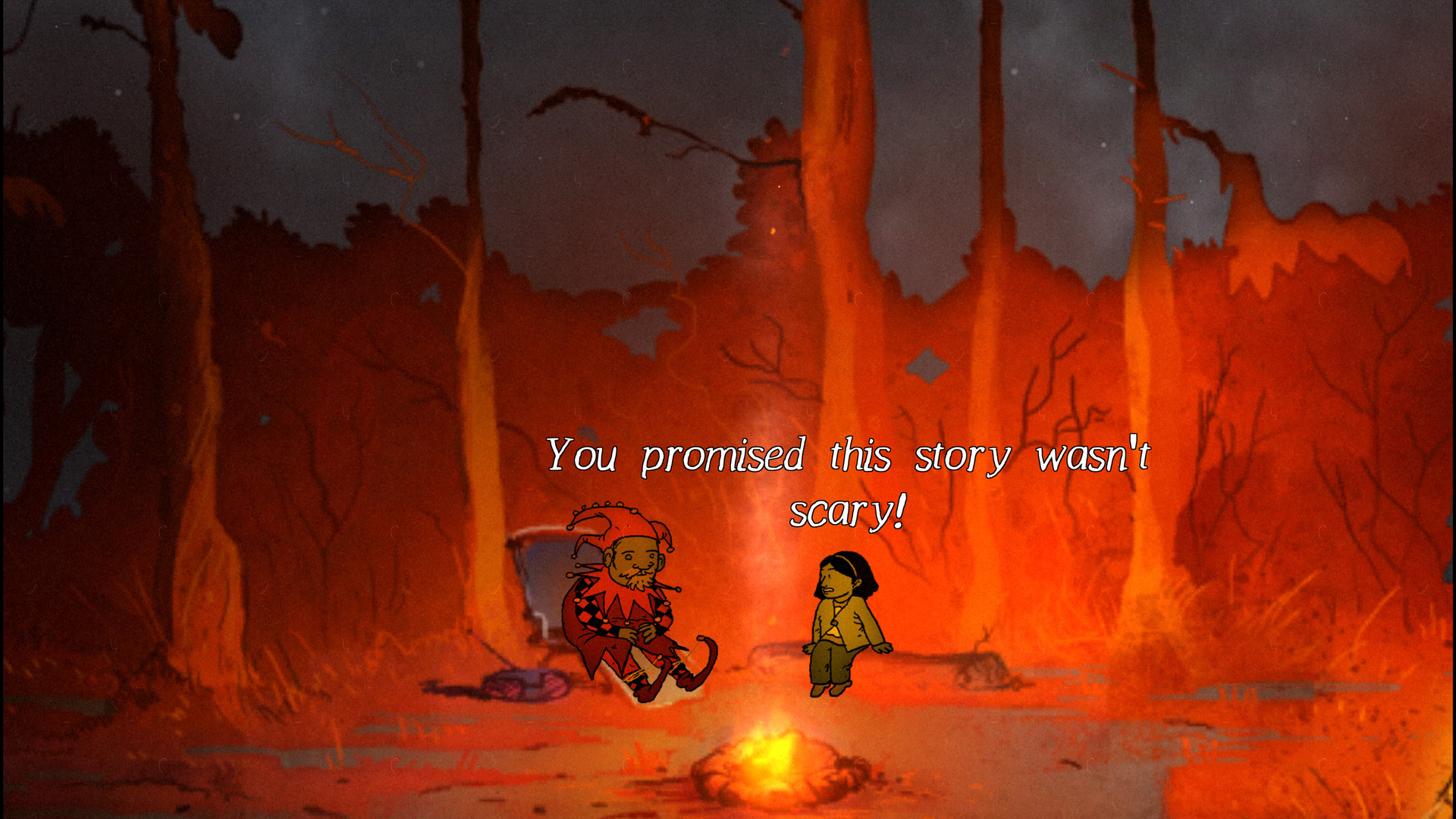
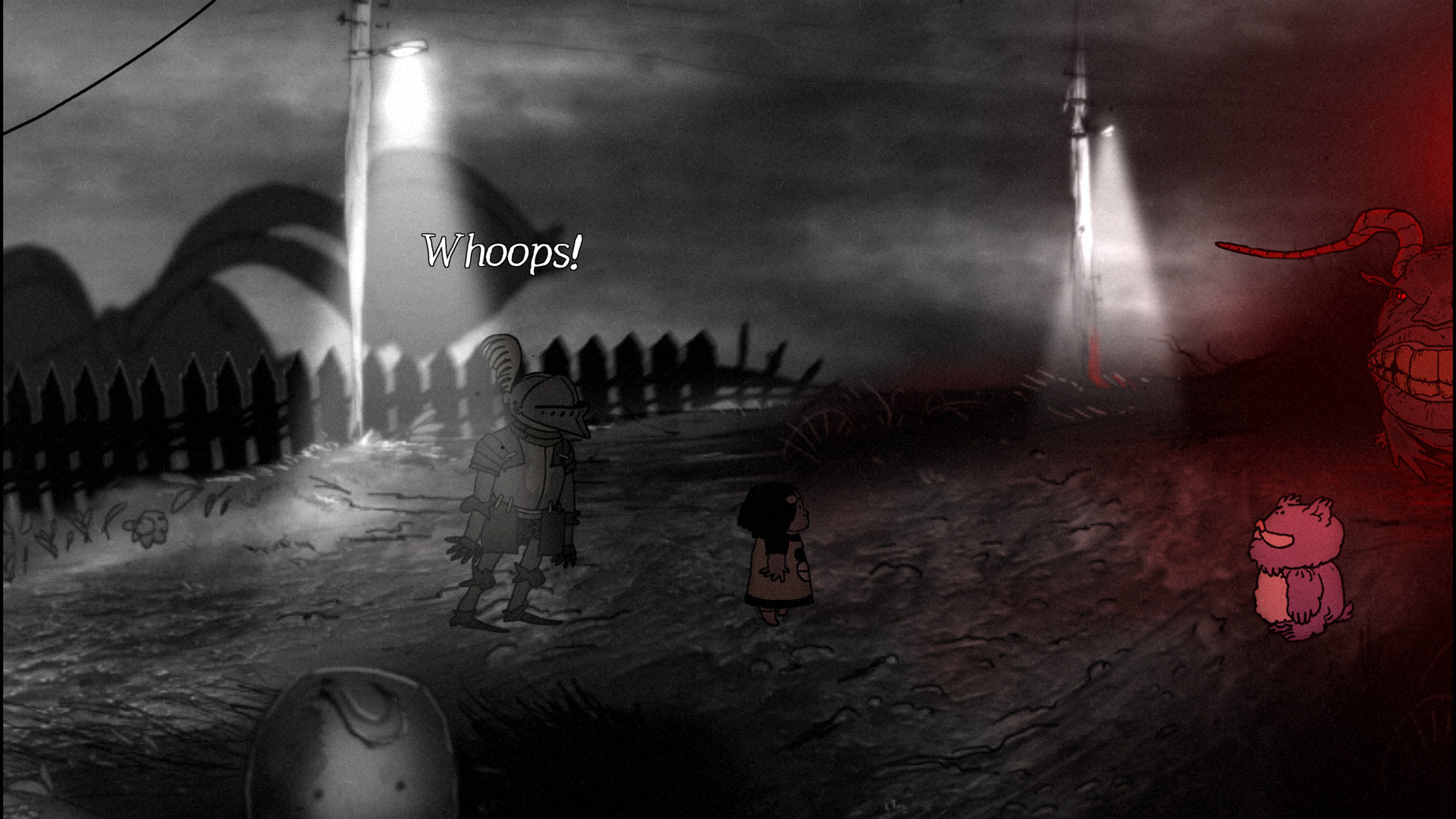
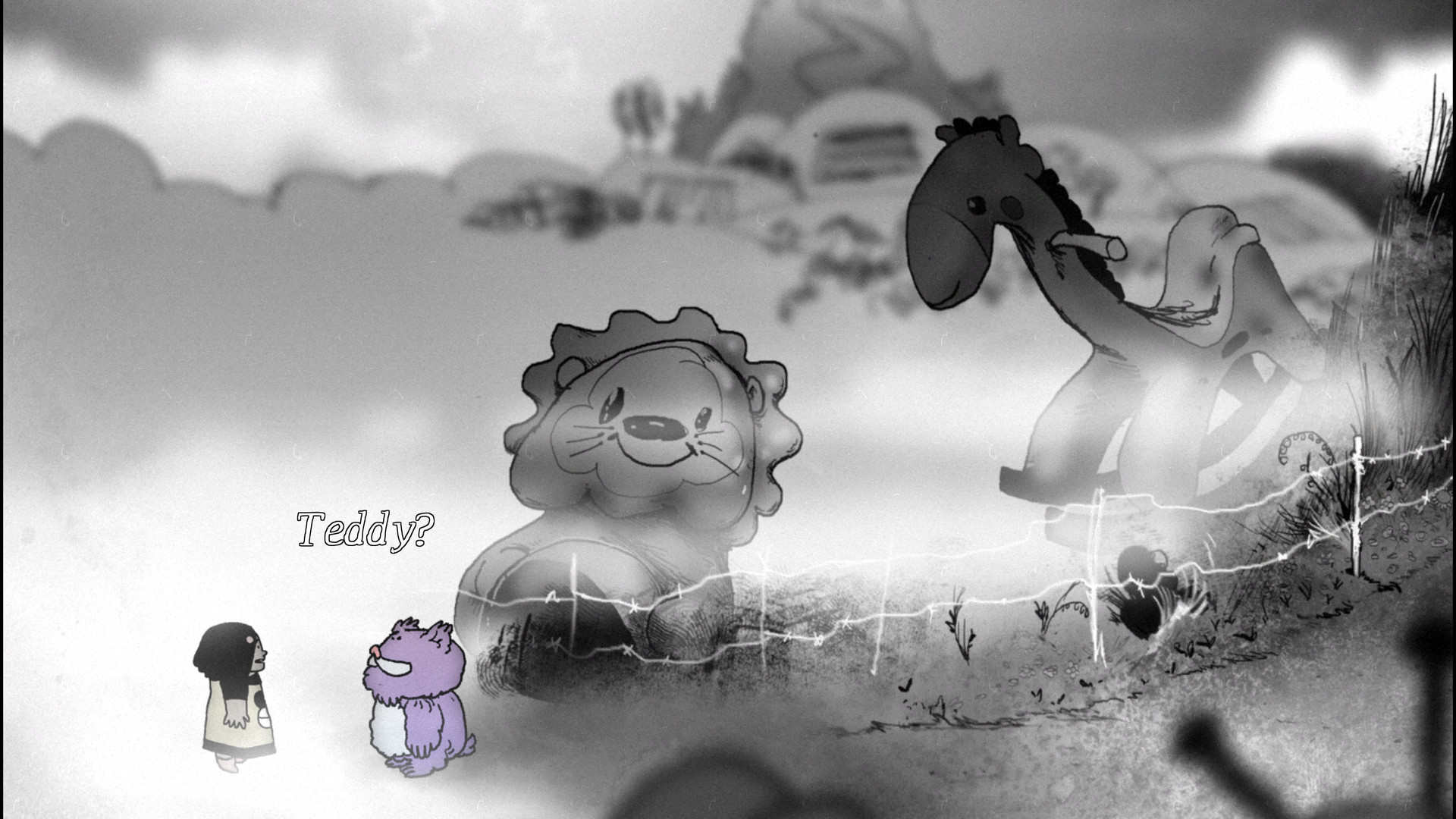
Lydia is not so much a game as it is a public service announcement about the risks of alcohol, delivered through the medium of the eShop. The dark subject matter is at times well outlined by some bleak and surreal imagery, but it’s discussed in such a blunt manner that even a powerful ending leaves the story feeling less poignant and more thoroughly miserable. There will be those who can forgive the complete lack of gameplay in the face of raising such an important topic, and while I applaud the intention and understand the gravity of its creation, I find it hard to advocate anyone taking on 45 minutes of pure distilled depression, topped with a smattering of trauma.


